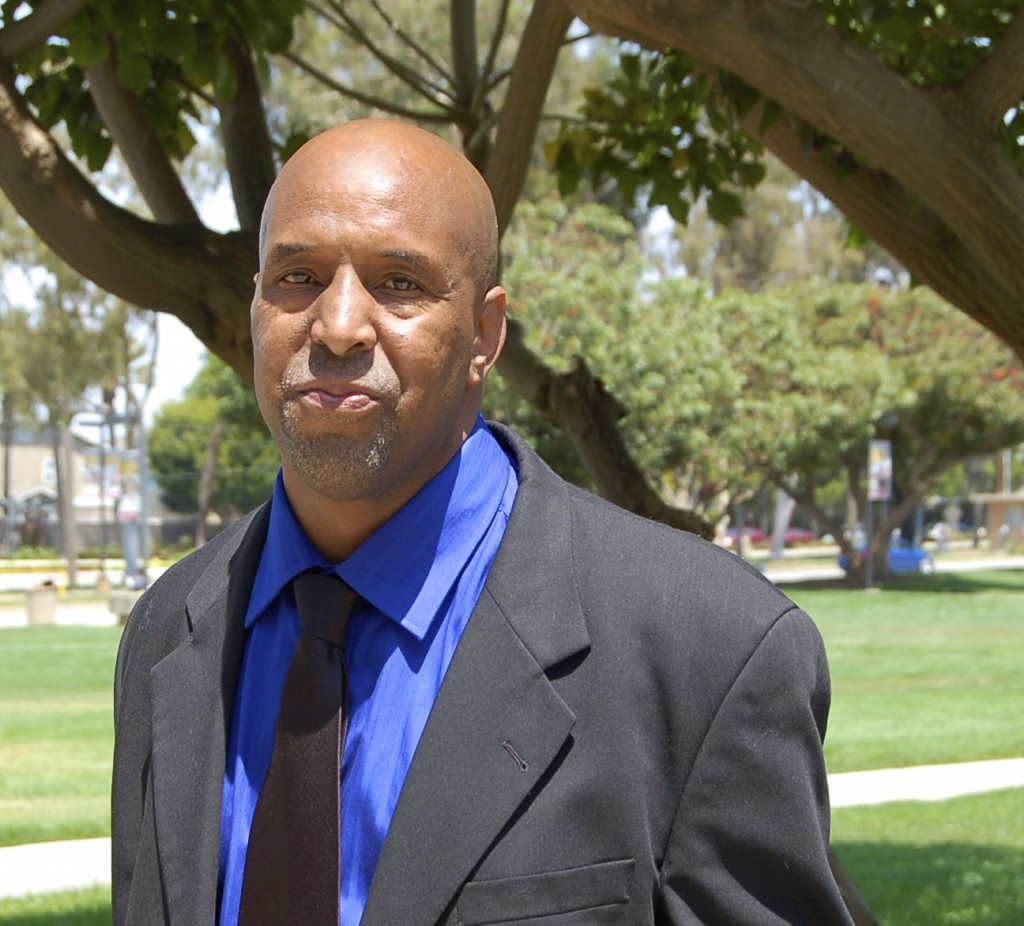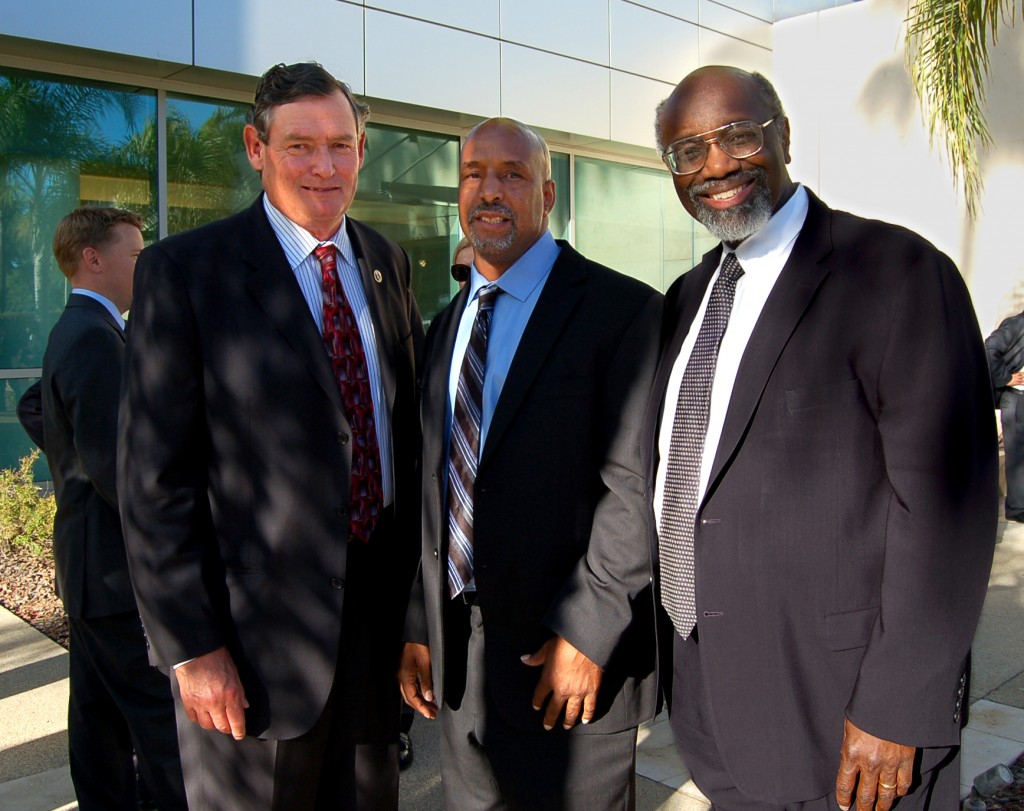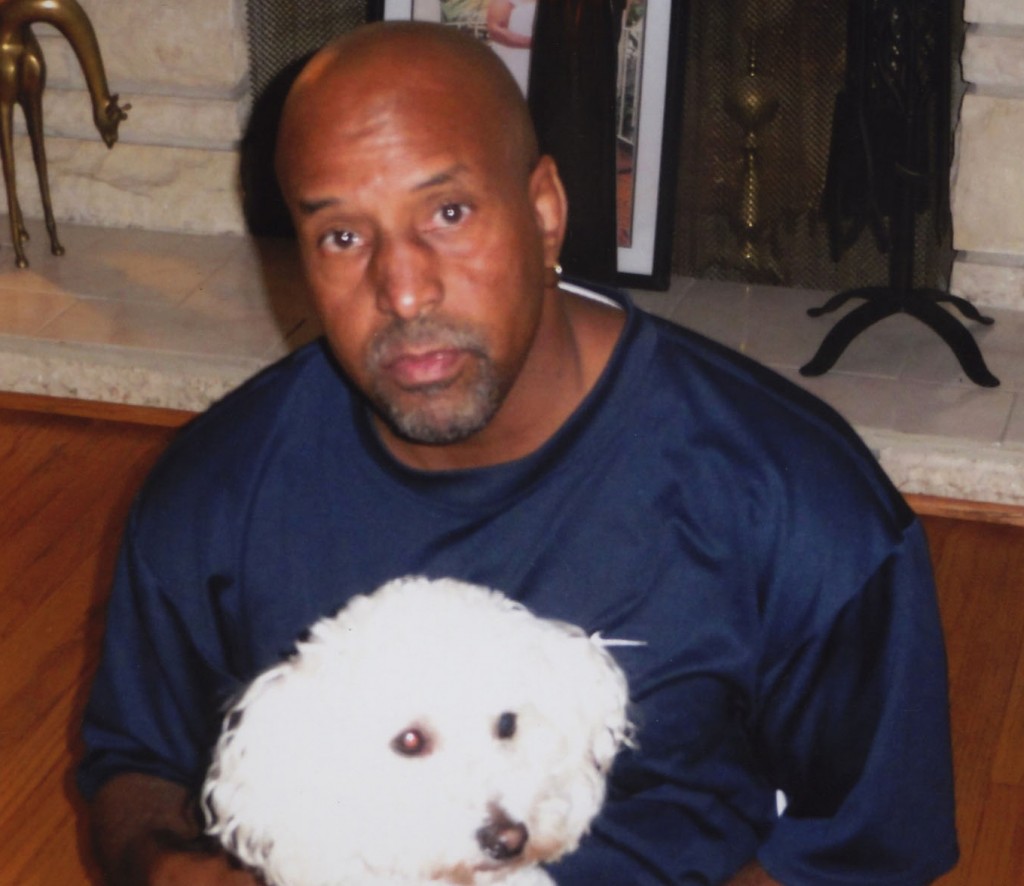Just when many 21-year-old undergraduates are about to begin their last academic term, John Bagnerise was starting a much different sort of term–an 18-year-to-life sentence at Folsom State Prison. He spent the next 22 years incarcerated in some the toughest prisons in California for a crime for which he was present, but did not commit.
 “I had to convince a parole board that I was suitable to be a part of society and could readjust to a world that had become foreign to me,” said the determined 49-year-old.
“I had to convince a parole board that I was suitable to be a part of society and could readjust to a world that had become foreign to me,” said the determined 49-year-old.
And convince he did, but not before 12 years–when he became eligible for parole–and another decade of pleading his case to parole boards would pass.
Now six years out of prison, Bagnerise holds a bachelor’s degree in sociology from California State University, Dominguez Hills, finishing in the top tier of the 2012 class with a 3.8 GPA, having made the honors list every semester and graduating with honors in the major. He currently holds a 4.0 GPA in the university’s Master of Arts in Sociology program and is on target to graduate in December and with a supplemental research certificate in May. He is a certified drug counselor with the California Association for Alcohol/Drug Educators, and since 2008 has volunteered and worked as a counselor at alcohol and substance abuse treatment facilities in Los Angeles.
He was recently named as the 2012-13 CSU Dominguez Hills recipient of the CSU system’s most prestigious award, the CSU Trustees’ Award for Outstanding Achievement, bestowed to those students–one from each of the 23 CSU campuses–who demonstrate superior academic performance, personal accomplishments, community service, and financial need. As part of that award, he was also named the 2013 Edison International Scholar, which includes a $6,000 scholarship. On Sept. 24, he was honored at a recognition ceremony held at the CSU Office of the Chancellor in Long Beach.
“Words cannot truly measure my feelings of joy for being awarded this scholarship. The monetary value is less important to me than the testament it conveys, that we live in a society that believes in second chances,” Bagnerise said. “What I take most from this honor is that, it is never too late to turn your life around.”

But his is not simply an overcoming-the-odds story. Bagnerise seemed to have it all before poor decisions began to chip away at his life.
A bright young boy, the Los Angeles native grew up in fairly affluent neighborhoods on the west side of Los Angeles and attended some of the area’s best parochial and public schools. As a restless and under-challenged teenager, however, he bounced from school to school, getting expelled from Hamilton, Fairfax, and University high schools.
“My transition from Catholic school to public school kind of left me where I wasn’t interested in school,” he reflected. “But we begged–my sister and my brother [and I]–to go to public school. So, [my mother] let us go. … The kids there were so far behind. Stuff they were doing in the fifth grade, I learned in the third grade. So, I became a clown. I messed up just to be messing up. Not because I was bad. … I think I was seeking some kind of attention.”
Although, he said, he considered himself at the time intellectually ahead of his classmates, when he reached 11th grade he had fallen so far behind academically that he decided to take the high school proficiency examination so he could go to college without delay.
He passed the exam and in fall 1981–the same year he would have been a senior in high school–he enrolled at Santa Monica City College. By 1984 he had earned two associate’s degree, one in liberal arts and another in general education. He continued to work as a teacher’s aide as he had since he was 16, and had been accepted into the Education Opportunity Program at CSU Los Angeles where he eventually hoped to earn a teaching credential.
“I was on the fast track to be a teacher,” he commented.
But his life as he knew it would come to a shocking end. Because, all the while he appeared focused on his studies and his future as a teacher and a new father, he was hustling drugs on the side. It started when Bagnerise was about 18. Cocaine use had become epidemic, and was particularly prevalent in his neighborhood. Although he didn’t use the drug, he started selling it.
“I jumped into it without really thinking about consequences, or thinking about the harm I was causing other people,” he recalled.
In December 1985, 21-year-old Bagnerise went with a drug-dealing associate to collect on a debt, when, without warning or prior discussion, his partner pulled out a gun and shot their fellow drug dealer.
Stunned by the sudden turn of events he turned himself in to the authorities the next day with the intent to reveal the shooter’s identity. But once in jail, he came to a realization: in that world, ratting isn’t an option.
He thought the shooter would explain what happened and his situation would be mitigated. But the explanation wouldn’t come until many years later. Although he didn’t even have a weapon, Bagnerise accepted the charge of aiding and abetting in a second degree murder–and much of the responsibility–because someone died as a result of his involvement in dealing drugs.
“I didn’t know [the shooting] was going to happen and all that. Okay, that’s true, but the reality is, I played a part and I had a responsibility because I made choices. And my choices weren’t based on irrational thinking. I made rational choices; ‘I’m going to sell drugs. I’m going to make money.’ I wasn’t dumb. I mean, it wasn’t like, ‘I can’t get a job.’ I had a job! I worked for the school [district]; a good job that could’ve propelled me to a career.”
Initially bitter about his situation and the prospect of a long sentence, possibly life, he began to focus on introspection and rehabilitating himself. He expanded his already prolific reading, beyond militant writings that had consumed him in the beginning of his incarceration, to include self-help books and authors by the likes of Khalil Gibran and Dr. Phil McGraw, who then had yet to become a television celebrity known simply as Dr. Phil.
He completed several units from Sacramento City College while he was detained at Folsom, and even more from the College of the Sequoias while at Corcoran State Prison (colleges provided classes–free of charge–to California prisons until 1993 when the program was discontinued).
After eight parole hearings, and without a prior criminal record, Bagnerise was released on parole in 2007. Bagnerise took his first job working in construction when he reentered into society. But not particularly inclined toward skilled labor, after nine months he was ready to reclaim the life he once had.
“That’s when I made the decision to go back to school–in 2008,” he remembered.
While in prison, he had approached personal development with discipline. He participated in such programs as anger and stress management, trade training in drafting and computer repair, and although he didn’t abuse alcohol or drugs, he participated in Alcoholics Anonymous and Narcotics Anonymous. He also became an HIV peer educator and a substance abuse peer mentor.

“When I came home, I brought that same work ethic to school,” he said.
He went on to earn a third AA degree in 2010 from West Los Angeles College in alcohol and drug studies–and earned several dean’s and president’s honors in the process.
“I fell in love with sociology at West L.A. [College] because I took a couple of classes and it kind of resonated with my life,” he said. “I started understanding ‘self’ [while in prison], but I couldn’t put the labels to it, what this was all about, until I became a sociology major.”
It also struck Bagnerise that he could draw upon his experience to have a positive influence on children so they don’t make some of the same mistakes he made.
“I want to use my life as a testimony. I never had anyone telling me, [while] growing up, ‘Man, don’t sell drugs. That ain’t cool,’” he remarked. “I want to try to reach some kids at some point and tell them, ‘Look man, people that are cool are the ones that are square, that go to school.’ … It’s about going to school, going to work every day, doing something productive.”
Moreover, Bagnerise wants to pay it forward and one day own a wellness center that meets the needs of individuals suffering from addiction.
“My life is going to be a life of service,” he avowed.
With that in mind, he transferred to CSU Dominguez Hills in fall 2010 as a human services major, but a chance meeting with Clare Weber, associate professor of sociology, led him to change his major to sociology. Bagnerise said she continues to be an invaluable mentor to him.
“The whole sociology department has been great. … Just to name a few [people], Dr. Pinto, Dr. Weber, Dr. Skiffer, Professor Sotto, and Dr. Prado. … He’s hard, but I’ve learned so much from him. When I get my papers back from him, it looks like Zorro went through them,” Bagnerise mused. “These people have been really inspirational to me. … Dominguez has been really good to me. School has been my refuge. People here, I tell them about my situation, they accept me.”
“I’m blessed to be at Dominguez. I still walk on campus and I’ll be in awe because then I think about being in prison and looking at those walls, looking around me at gun towers and I say, ‘Man, I went from prison to college.’”